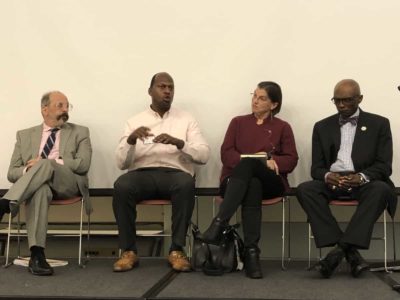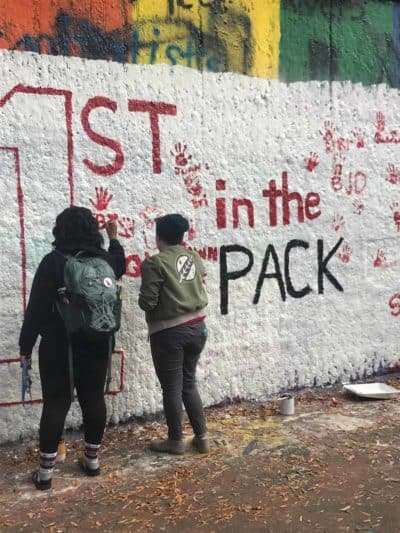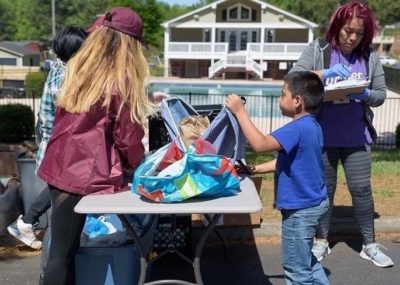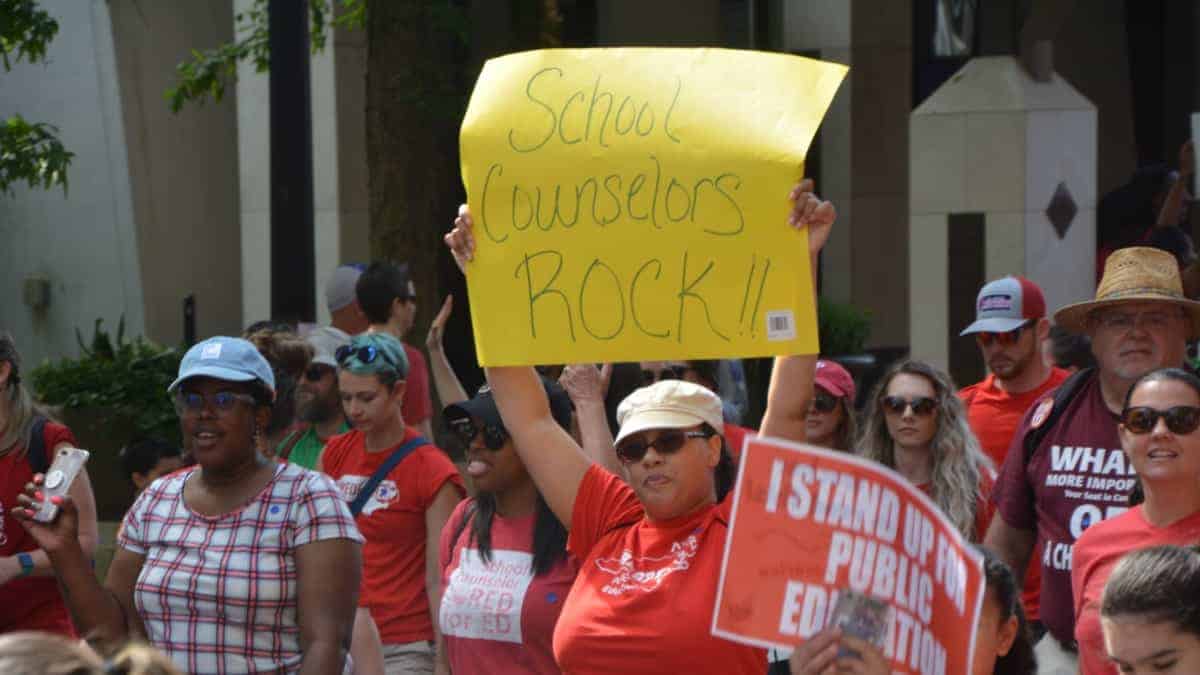A small, green ribbon, pinned to the shirt of NCAE President Mark Jewell as he addressed the thousands preparing to march toward the North Carolina General Assembly, dominated its red backdrop Wednesday morning in downtown Raleigh.
Hours before organizers made final preparations to welcome statewide education advocates to the second NCAE Day of Action, a shooting Tuesday night at the University of North Carolina-Charlotte left two dead, four wounded, and a community shattered.
https://www.ednc.org/2019/05/01/hear-me-screaming-north-carolina-fear-of-violence-has-no-place-in-our-schools-at-our-colleges-and-universities/
“We dedicate this march on their behalf today,” said Jewell.
The timing of the state’s second campus shooting in recent months underscored one of the five key legislative demands listed by the NCAE as its impetus to march: hiring more psychologists, social workers, counselors, and other health professionals to meet professional-to-student standards.
“Our students who are struggling with trauma and poverty — they need the nurses, the guidance counselors, the social workers.” — Mark Jewell
Along with Medicaid expansion, increased pay for all school employees, reinstatement of state retiree health benefits, and a restoration of pay for advanced-degree holders, the cry for more student support personnel became a howl in the wake of Tuesday’s tragedy.
Gov. Roy Cooper, who briefly addressed the crowd before departing for UNCC, highlighted the urgency of increasing funds to address the social-emotional needs of students, stating that “more mental health coverage will keep us healthier and safer.”
“As educators, you often think about school safety when you walk into your schools, your classrooms, and your gymnasiums,” he continued. “We must work for a day when no student, no teacher, no parent is fearful for their safety in a school or anywhere else for that matter.”
“Invest resources in mental health professionals,” said James Carter, a former teacher and father of two students in Davidson County Schools. Along with increasing state funding to the national average for per-pupil expenditure, Carter argued that no legislative item is more pressing than that which concerns a student’s psychological well-being.
Carol Sawyer, who serves on the Board of Education for Charlotte-Mecklenburg Schools, shared how increased funding for support personnel would benefit her district: “We have more than 4,000 students who are homeless. We have students who are suffering from mental health issues, from anxiety, and we need to address the issues of trauma in our students before we can teach algebra. They need to have the stability and support to focus on academics.”
CMS BOE member @Sawyer4Schools fiercely advocating for raising support personnel pay, says we’re creating the exact poverty we’re trying to eradicate by keeping wages stagnant pic.twitter.com/LDHZMKM1u0
— Greg Asciutto (@gasciutto) May 1, 2019
In the middle of the rally, North Carolina educators walking along Fayetteville Street received an email from the office of State Superintendent Mark Johnson, the man who many educators hoped to influence with the day’s demonstrations. In his message — a response to the UNCC shooting — Johnson described school safety as a top priority: “Protecting schools and providing mental health supports are essential as we work together to keep one student’s challenges from becoming a school tragedy.”
The email also noted investments in school safety grants that are “helping to get more mental health and community partnerships in our schools,” listed numerous online professional development sessions available for educators seeking to “understand student behavior” or acquire mental health first aid training, and directed interested parties to schedule Critical Incident Response training with the Center for Safer Schools.
For complete coverage of yesterday’s events and legislative responses to the Day of Action:
https://www.ednc.org/2019/05/02/teachers-descend-on-downtown-raleigh/
Recommended reading




